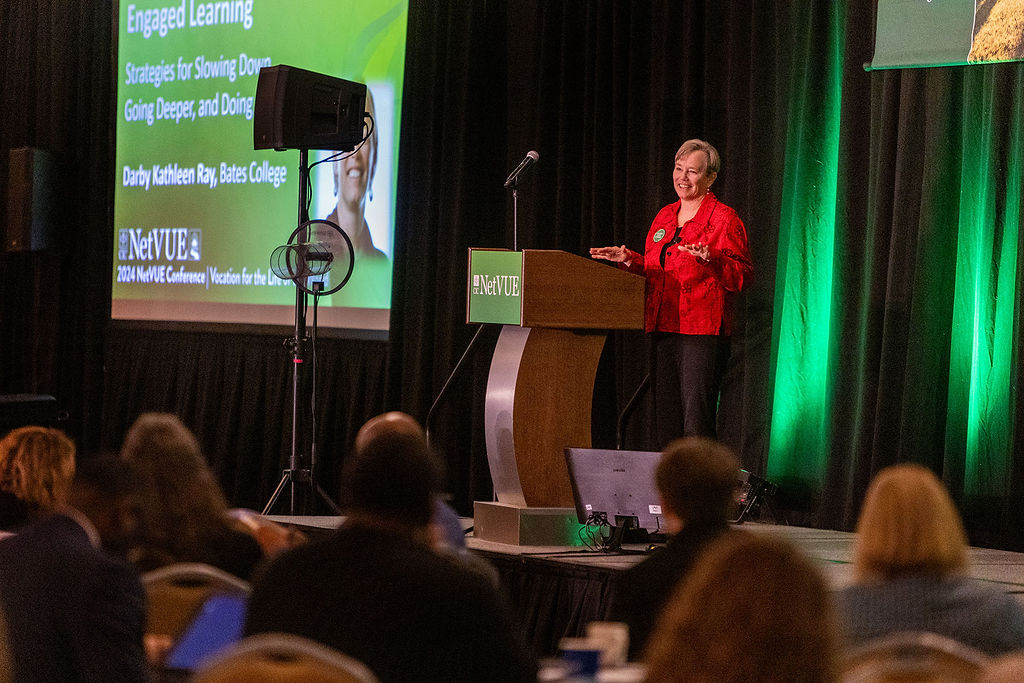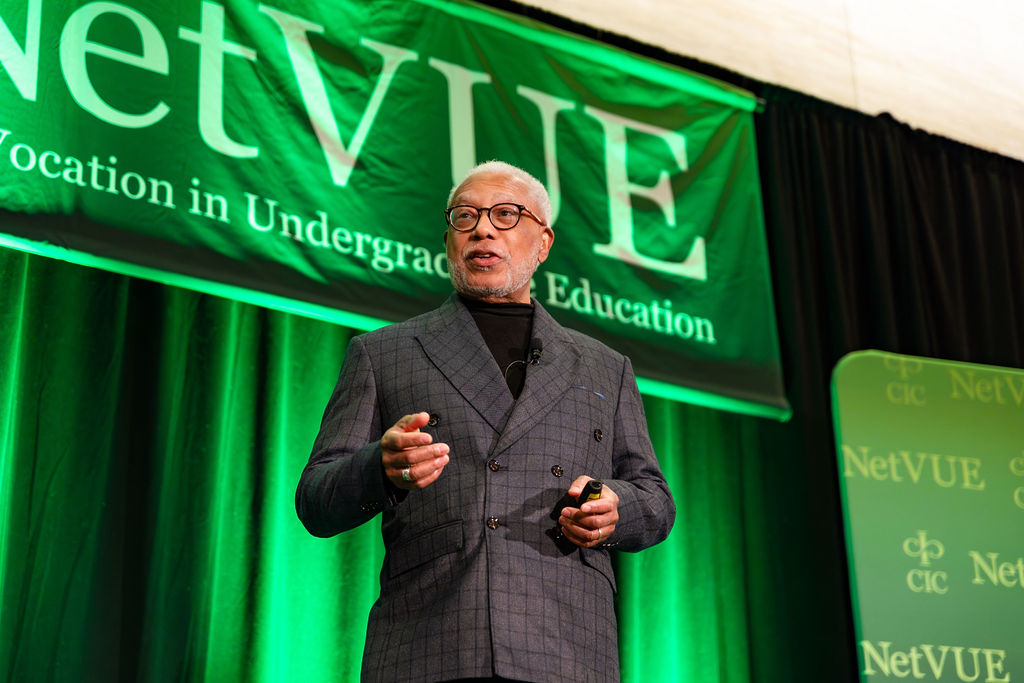
By Stephanie Johnson
Dean of the College of Liberal Studies, Pacific Lutheran University
The 2024 NetVUE Conference on “Vocation for the Life of the World” brought campus leaders from across the country together around the question of how best to prepare students to contribute to the common good. Anchoring that conversation were three powerful plenary speakers who, while approaching the question of vocation for the life of the world differently, strengthened and deepened our understanding of this important work.
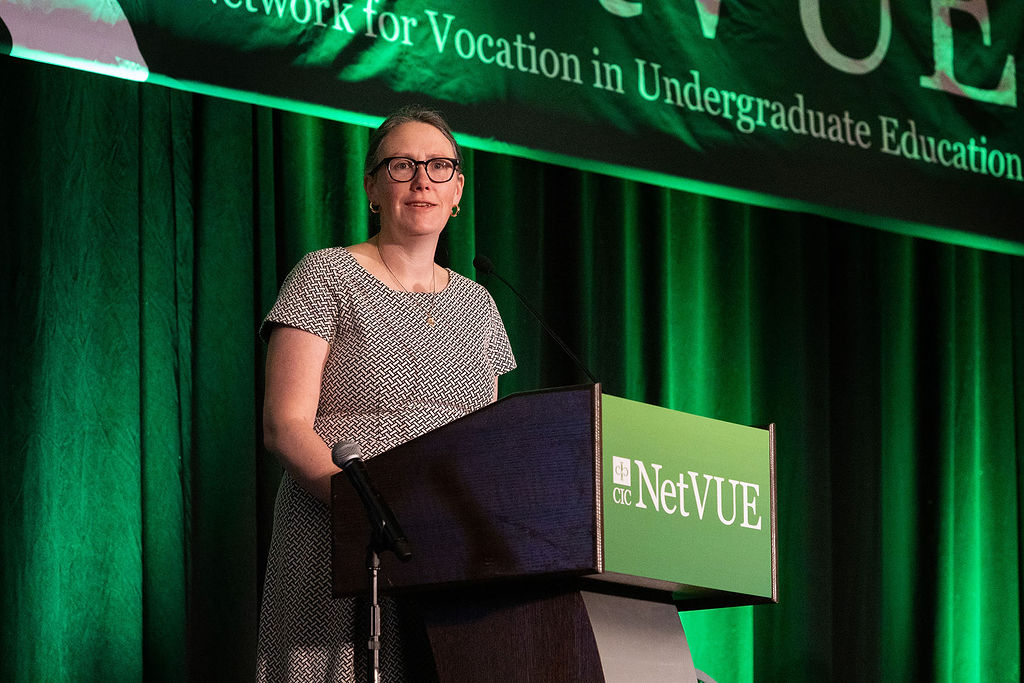
Meghan Sullivan, Wilsey Family Collegiate Professor of Philosophy and the director of the Notre Dame Institute for Advanced Study at the University of Notre Dame, offered the keynote address on the opening day of the conference. In her plenary session titled “Called to Understand and Advocate for the Common Good,” she stressed that we must not allow students to “replace a more ambitious sense of the good life with what is cheap or easy.” By collaborating across academic and student affairs to prepare students for morally difficult challenges, we can support their discernment of callings that address the common good. Sullivan reminded us that if we do not provide this formative experience for undergraduates, then they will not be prepared for the challenges to come. We can do that best by working together through intentional partnerships between faculty members and student life staff that support our shared mission.
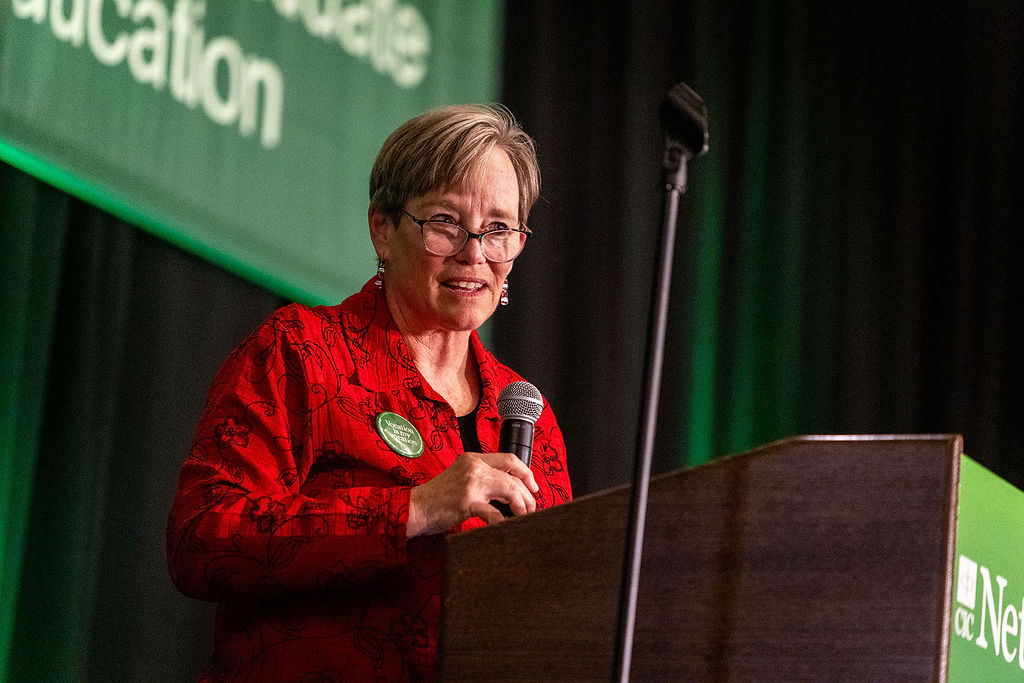
On the second day of the conference, Darby Kathleen Ray, Donald W. and Ann M. Harward Professor of Civic Engagement, professor of religious studies, and the director of the Harward Center for Community Partnerships at Bates College, led a roundtable plenary that included both information about community-engaged learning and participatory exercises and conversations in small groups around tables. Titled “Hunger, Hubris, and Community Engaged Learning: Strategies for Slowing Down, Going Deeper, and Doing Better,” this session focused on the need for community engagement to be integrated into vocation curricula so that we attend to “how we show up in our communities, or not,” and thus prompt students to attend to such relationships as well. In addition to offering concrete examples of classroom learning applied to real-world situations, she emphasized that no matter the learning goals or assignments, we must “begin with ethics.” We must use asset-based language to talk about communities rather than language that harms communities by seeing only deficits.
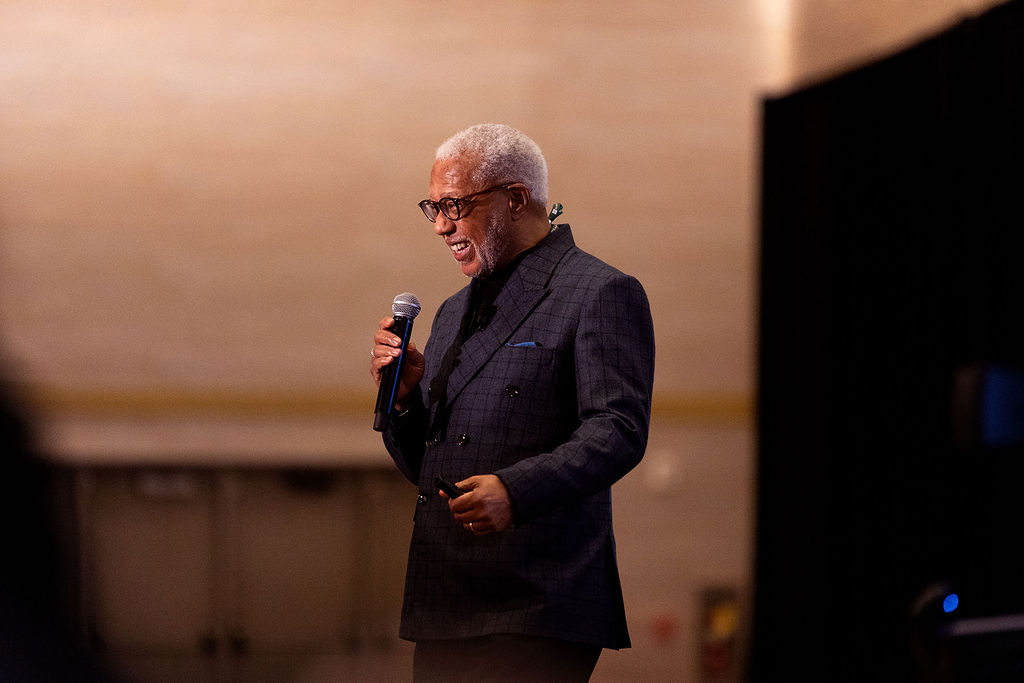
On the final day of the conference, Walter Earl Fluker, Distinguished Professor of the Howard Thurman Center at the Hartford International University for Religion and Peace, and Professor Emeritus of Ethical Leadership (formerly the Martin Luther King, Jr. Chair) at Boston University, spoke on ethical leadership. As he shared what it means to be “Called to Ethical Leadership at Intersections Where Worlds Collide,” he emphasized being “awakened to justice” as our primary calling. Leadership means standing in the intersection of “lifeworlds” and “systemworlds,” and responding to tensions between values and systems of power in service of the collective good. Ethical leaders understand that leadership decisions are contextual, so we must attend to the wisdom, habits, and practices of particular traditions and begin by listening, learning, and deliberating. Only then can we make just decisions.
Through these three sessions, participants gained new ways of creating formative experiences for students through moral and theological conversation, practical suggestions for incorporating community-engaged learning in curricula, resources for teaching vocational exploration for the common good, and a foundation for ethical leadership that works for justice.

